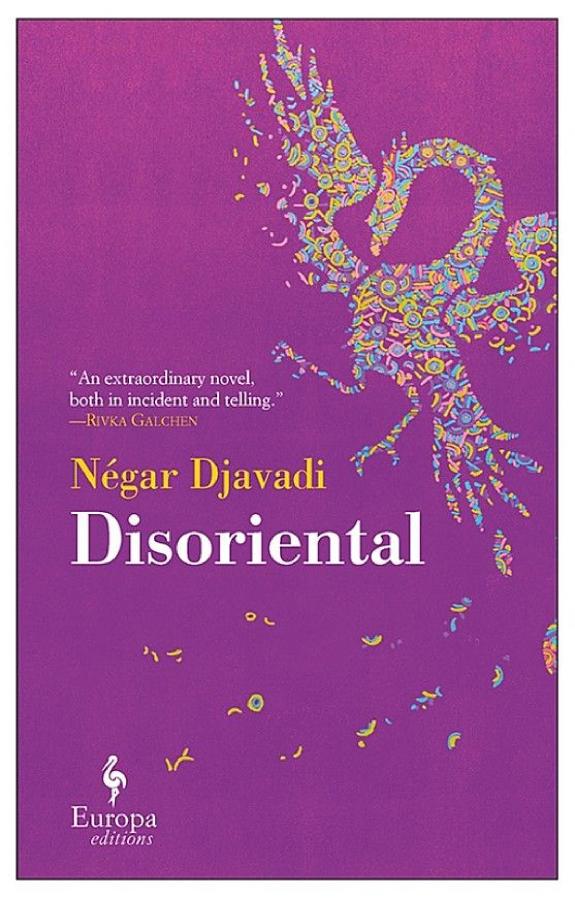
Armchair travel around the world!
Start your reading adventures with our FREE Reading Atlas.

- Around the World in 14 Books
- 7 Thrilling Book Series
- 6 Audiobooks That Are Like Theater For Your Ears



This family saga (320 pages) was published in May of 2018 by Europa Editions. The book takes you to pre-Revolution Iran of the '60s and '70s. Melissa read Disoriental and loved it; it wouldn't be on our site if she didn't recommend it.
Bookshop.org is an online bookstore with a mission to financially support independent bookstores and give back to the book community.

Our heroine Kimiâ Sadr is a storyteller — sardonic and breathtakingly vulnerable, a modern Scheherazade with a predilection for punk rock. She’s an exile from Iran, the daughter of a dissident journalist, and the granddaughter of a woman born into a 19th-century harem.
When we meet Kimiâ, she’s alone in the waiting room of a Paris clinic. She bides her time by telling us her family’s life story and slowly revealing what brought her to this chair in this room.
Her family is almost the stuff of folklore. There’s the great-grandfather who collected 52 wives at his estate in Mazandaran, a province in the north of Iran with green hills and cooling mist. We meet her parents Darius and Sara, a pair whose love was rivaled only by devotion to revolution. And there are grandmothers, uncles, sisters, cousins, and neighborhood friends, all essential to the tale and to Kimiâ learning to understand herself.
The personal, decisive moments of the Sadr family’s story play out against the Iranian Revolution of 1979. If your education is a bit thin on the history of Iran, fear not; author Négar Djavadi deftly weaves the details into the narrative with invisible threads.
Early on, Kimiâ references something she calls The EVENT. Her narration loops and swirls — following ‘the natural fits and starts’ of recollection — as she slowly advances and retreats on the catalyst for everything that came after.
Kimiâ is an astute tour guide, and her recollections will transport you to the Iran of her childhood: shopping in a French supermarket, vacations at Second Uncle’s house, a coffee table laden with homemade cardamom-seed cookies and orange blossom-water crepes, soldiers storming her front door. It’s visceral, cinematic, and suspenseful.
But it’s also funny and charming, insightful and inspiring. The adult Kimiâ we meet is a mash-up of all the previous ones — tender child, angry teenager, troubled adult, sister, daughter, lover, friend. She’s a woman you’ll be glad to know.
My sisters remember other times that I’ve completely forgotten. Summer nights sleeping on the roof of Grandma Emma’s house under a patched-up muslin mosquito net; the books Sara bought us before long vacations; trips to the hammam with my aunts and cousins in the villages of Mazandaran. On the rare occasions when the three of us are all together, without their husbands or children, having dinner in a restaurant chosen by Mina (who has been a vegetarian since THE EVENT), they always end up talking about those times… Then they warm up, and laugh, and cut off each other’s sentences, and repeat the same sentences as if no others could possibly be used to describe those moments. — Négar Djavadi
Wanna help us spread the word? If you like this page, please share with your friends.
Strong Sense of Place is a website and podcast dedicated to literary travel and books we love. Reading good books increases empathy. Empathy is good for all of us and the amazing world we inhabit.
Strong Sense of Place is a listener-supported podcast. If you like the work we do, you can help make it happen by joining our Patreon! That'll unlock bonus content for you, too — including Mel's secret book reviews and Dave's behind-the-scenes notes for the latest Two Truths and a Lie.
Join our Substack to get our FREE newsletter with podcast updates and behind-the-scenes info — and join in fun chats about books and travel with other lovely readers.

We'll share enough detail to help you decide if a book is for you, but we'll never ruin plot twists or give away the ending.
Content on this site is ©2026 by Smudge Publishing, unless otherwise noted. Peace be with you, person who reads the small type.